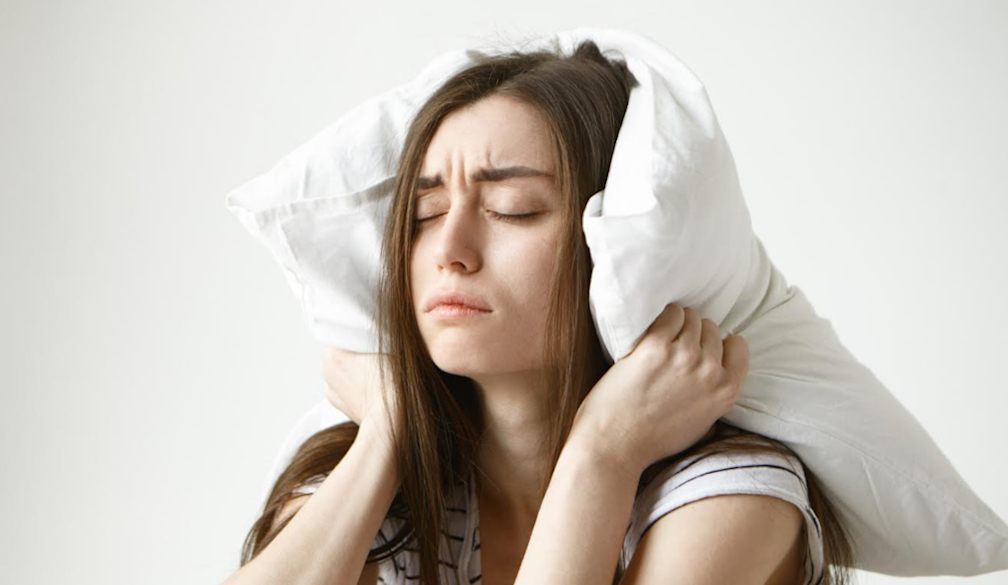Insomnia: Causes and Cure

Insomnia occurs when you are consistently unable to obtain enough sleep to feel fresh. To provide a general overview, stress, jet lag, pregnancy, and chronic health concerns are all potential causes of insomnia. Whereas therapy, drugs, and lifestyle modifications are all options for treatment.
In this blog, we will go a bit more into insomnia so that we may change our lifestyle and live a long, healthy, and productive life. If your insomnia is starting to affect your daily life, it is highly suggested to book an online medical consultation to understand the underlying reasons behind your sleeplessness and how to combat them.
What is Insomnia?
Insomnia is a sleep disturbance characterised by difficulty falling or staying asleep. Those who suffer from insomnia often experience waking up after hours of rest feeling tired and drained. This lack of quality sleep can lead to tiredness and difficulties working during the day.
Sleep is vital for overall well-being, and insufficient sleep can negatively impact both physical and mental wellbeing and overall standard of life. Statistics indicate that around one-third of the population experiences some form of sleeplessness, and approximately six to ten per cent of people meet the diagnostic requirements for an insomnia disorder.
Symptoms of Insomnia
These specific symptoms help identify insomnia. Insomniacs often wake up too early and have difficulty going back to sleep. If you find yourself up most of the night, scared that you will not fall asleep, you may have insomnia.
Furthermore, if you observe that you are not getting an uninterrupted 8-hour sleep and instead are getting fragmented sleep, you should see a specialist. Tiredness, anger, mood changes, lack of attention, and memory loss are all symptoms of insomnia.
Now that you have somewhat of an idea of what insomnia entails, it might be a good idea to look for online doctors for consultation from the comfort of your own house. A simple Google search might help you get connected to various medical platforms that can help you.
Types Of Insomnia
Insomnia is defined in a variety of ways by experts based on its unique characteristics:
Chronic insomnia is defined as insomnia that impacts your sleep at least three days per week, often for three months or more.
Acute insomnia is a condition that describes temporary sleeping problems that usually last just a couple of weeks.
Maintenance insomnia is defined as difficulty staying asleep after falling asleep or being awake too early regularly. This sort of insomnia may be related to underlying mental and physical health problems, but staying up and worrying about not getting enough sleep may exacerbate it.
Onset insomnia is characterised by trouble falling asleep. Sleep problems might arise due to coffee usage, symptoms of mental health, or other typical insomnia causes, but they may also occur as a consequence of other types of sleep disorders.
Childhood behavioural insomnia is defined by persistent difficulty falling asleep, refusal to sleep, or both in children. Using self-soothing skills and consistent sleep schedules may help kids with this issue.
Primary (Idiopathic) and Secondary (Comorbid) Insomnia
Primary insomnia has no obvious cause (pre-existing medical or psychological problem). Secondary insomnia, on the other hand, is caused by underlying factors such as chronic disease or discomfort, depression, anxiety, jobs with inconsistent schedules, particular drugs, etc.
What Might Cause Insomnia
Insomnia can be caused by various chronic conditions like arthritis and back pain, as well as psychological issues such as anxiety, melancholy, or substance usage problems.
Other factors that may contribute to insomnia include obstructive sleep apnea and other sleep disorders, as well as health issues like cancer, diabetes, GERD, and cardiovascular disease. Insomnia can affect individuals of all ages and genders but is more common in mature adults and women before, during, and after menopause.
Risk factors for insomnia include excessive stress from life challenges, financial troubles, or relationship issues, frequent travel across time zones, sedentary lifestyles, irregular sleep-wake patterns due to work shifts, high caffeine intake, and tobacco and alcohol use.
Additionally, pregnancy can lead to insomnia, particularly during the early and late trimesters, due to physiological changes, hormonal fluctuations, increased stress and anxiety, cramping, and backaches.
No matter how much control you think you have over your condition, getting an expert opinion is always a good idea. This is especially made very easy through various platforms that offer online medical consultation.
Mental Health And Insomnia
Have you ever stayed up all night worried about a matter you can't control? Insomnia is often associated with anxiety, and they are very closely linked.
For one thing, it may be difficult to get sleep if you cannot alleviate persistent thoughts of anxiety and dread. Chronic insomnia, on top of it, might make you concerned about how much rest you're missing and make it harder to handle tough and undesired emotions throughout the day.
Whether you have an anxiety condition or are experiencing temporary anxiety due to a particular stressor, such as a difficult job position or a disagreement in your romantic life, seeking treatment from a licensed psychologist or getting an online doctor consultation may help you tackle your symptoms.













